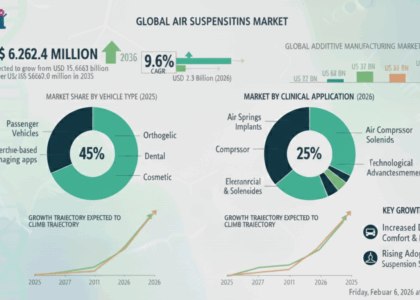
The global alternative retailing technologies market is projected to grow significantly from approximately USD 35.2 billion in 2025 to around USD 290.6 billion by 2035, expanding at an impressive compound annual growth rate (CAGR) of 24.8% over the forecast period. This exponential rise is being fueled by a widespread transformation in the retail landscape, where convenience, automation, and digital personalization are becoming central to customer experience. The rise of smart retailing solutions—ranging from cashier-less checkout and self-service kiosks to AI-powered product recommendations and immersive AR/VR platforms—is fundamentally reshaping the way consumers shop and how retailers operate. Accelerated by the global pandemic, which permanently shifted consumer behavior toward digital and contactless transactions, alternative retailing technologies are now being embraced across various retail formats including supermarkets, convenience stores, fashion outlets, and even gas stations.
Retailers are seeking ways to streamline operations, reduce labor costs, and enhance customer engagement through the use of intelligent systems. Technologies such as RFID-based inventory management, mobile point-of-sale systems, automated vending, and smart carts are allowing businesses to deliver faster, more efficient services while gathering actionable insights into buyer behavior. Furthermore, the rapid proliferation of e-commerce platforms has pushed traditional brick-and-mortar outlets to adopt omnichannel strategies supported by cutting-edge retail tech, blending online and offline channels to offer seamless and personalized customer journeys. This shift is particularly pronounced in regions with a growing tech-savvy population and strong internet penetration, such as Asia Pacific and North America.
Request Your Sample and Stay Ahead with Our Insightful Report!
https://www.futuremarketinsights.com/reports/sample/rep-gb-2308
Key Takeaways from the Alternative Retailing Technologies Market
One of the most significant takeaways is the growing importance of frictionless shopping experiences. Consumers are increasingly expecting minimal touchpoints, personalized product suggestions, and fast checkouts. Retailers are responding with automated retail technologies such as smart shelves, digital price tags, mobile payment terminals, and unmanned store models, all of which reduce human dependency and improve operational efficiency. These systems not only cut down queue times and improve customer satisfaction but also support real-time inventory visibility and predictive restocking.
Another major takeaway is the increased reliance on artificial intelligence and data analytics. Alternative retailing technologies are enabling retailers to process large volumes of customer data in real time, allowing them to optimize pricing, forecast demand, and enhance marketing strategies. AI-driven chatbots, visual search tools, and recommendation engines are being integrated into both physical stores and e-commerce platforms, delivering personalized experiences at scale. Additionally, voice-assisted shopping and gesture-based navigation are gaining momentum, especially in developed markets where convenience is paramount.
Emerging Trends in the Global Market
Several emerging trends are shaping the future of the alternative retailing technologies market. A prominent development is the adoption of cashier-less store models pioneered by major players like Amazon Go. These stores use a combination of computer vision, shelf sensors, and AI to track purchases and charge customers automatically upon exit. This model is now being replicated by retailers worldwide to enhance user convenience and reduce overhead costs.
Another key trend is the rise of AR and VR technologies in retail. Virtual try-on solutions for apparel, cosmetics, and eyewear, as well as 3D product visualizations, are helping customers make better purchasing decisions from the comfort of their homes. This is particularly important in the luxury and fashion segments, where visual aesthetics and fit are critical to customer satisfaction. Additionally, blockchain technology is making inroads into the retail sector by providing transparent and tamper-proof product tracking, enhancing trust in supply chain integrity and ethical sourcing.
Contactless payments, powered by NFC and QR code technologies, continue to expand rapidly across both emerging and mature economies. This trend is further supported by the growing availability of digital wallets and mobile banking applications. Moreover, the implementation of 5G networks is expected to enable faster and more reliable connectivity in retail environments, unlocking new capabilities for real-time customer interaction and remote device management.
Significant Developments and Opportunities
The shift toward alternative retailing technologies presents a wide range of opportunities for both retailers and technology providers. The growth of urban populations and busy consumer lifestyles have spurred demand for 24/7 automated retail services, such as vending kiosks, parcel lockers, and mobile storefronts. Startups and established players alike are investing in micro-fulfillment centers powered by robotics and AI to ensure quicker order delivery and reduced last-mile costs.
Another area of opportunity lies in sustainability. Retailers are increasingly leveraging smart technologies to optimize energy consumption, reduce waste, and promote environmentally conscious shopping. For instance, IoT-connected refrigeration systems and energy-efficient lighting can be managed remotely, while AI tools can guide customers toward eco-friendly product alternatives based on their preferences.
Additionally, retailers in emerging markets are leapfrogging traditional retail models by directly adopting digital-first approaches. In regions like Southeast Asia and Africa, mobile commerce and agent-based networks are revolutionizing rural retail access, creating new growth avenues for digital retailing platforms that combine online convenience with localized service models.
Recent Developments in the Market
Recent years have seen a surge in mergers, acquisitions, and partnerships aimed at accelerating the adoption of retail technologies. For example, technology companies are collaborating with retail chains to deploy end-to-end smart store ecosystems encompassing automated checkouts, in-store analytics, and integrated CRM systems. In 2024, a major international retailer announced a multi-country rollout of its AI-powered checkout-free concept stores in partnership with a leading computer vision firm, signaling a strong commitment to transforming the in-store experience.
Additionally, venture capital funding has been pouring into retail tech startups focused on edge computing, robotics, and AI-powered personalization. Companies are also introducing subscription-based retail tech solutions that allow small and mid-sized businesses to access cutting-edge tools without heavy upfront investment. Governments in various countries are supporting digital transformation in retail through innovation grants and pilot programs, particularly in smart city projects and urban retail corridors.
Thorough Market Evaluation: Full Report
https://www.futuremarketinsights.com/reports/alternative-retailing-technologies-market
Competition Outlook in the Alternative Retailing Technologies Market
The competitive landscape of the alternative retailing technologies market is diverse, encompassing multinational tech firms, retail-specific solution providers, hardware manufacturers, and emerging startups. Key players driving innovation and market expansion include Amazon Web Services, Toshiba Global Commerce Solutions, NCR Corporation, Diebold Nixdorf, Microsoft Corporation, Intel Corporation, Cisco Systems, Fujitsu Limited, Honeywell International Inc., and Shopify Inc. These companies are investing heavily in R&D, AI integration, and cloud-based platforms to enable scalable, modular, and customizable retail tech solutions for businesses of all sizes.
Key Segmentations
Market segmentation is broadly classified by technology type (automated checkout, mobile point-of-sale, self-service kiosks, digital signage, smart carts, RFID, AR/VR), by application (grocery stores, department stores, convenience stores, fashion & apparel, electronics, others), and by region (North America, Europe, Asia Pacific, Latin America, Middle East & Africa). Among these, the automated checkout and mobile point-of-sale segments are anticipated to experience the fastest growth due to their relevance in both large retail chains and small businesses aiming for operational efficiency and customer-centric service.
About Future Market Insights (FMI)
Future Market Insights, Inc. (ESOMAR certified, recipient of the Stevie Award, and a member of the Greater New York Chamber of Commerce) offers profound insights into the driving factors that are boosting demand in the market. FMI stands as the leading global provider of market intelligence, advisory services, consulting, and events for the Packaging, Food and Beverage, Consumer Technology, Healthcare, Industrial, and Chemicals markets. With a vast team of 400 analysts worldwide, FMI provides global, regional, and local expertise on diverse domains and industry trends across more than 110 countries.
Contact Us:
Future Market Insights Inc.
Christiana Corporate, 200 Continental Drive,
Suite 401, Newark, Delaware – 19713, USA
T: +1-845-579-5705
For Sales Enquiries: sales@futuremarketinsights.com
Website: https://www.futuremarketinsights.com
LinkedIn| Twitter| Blogs | YouTube




